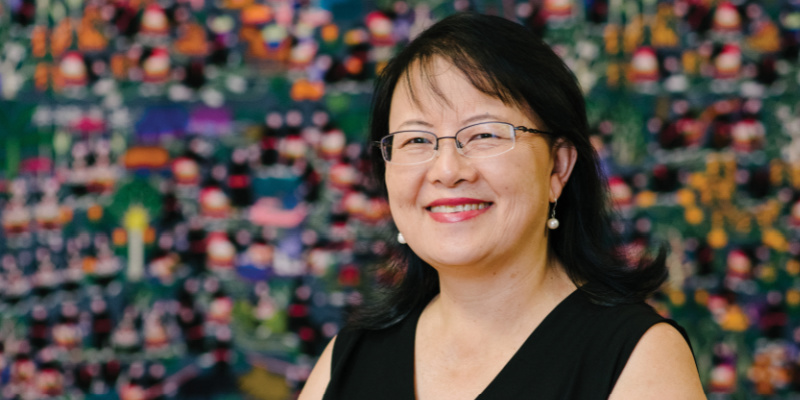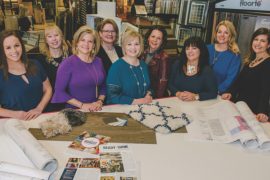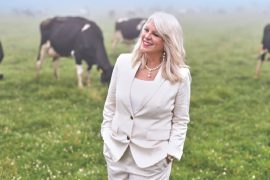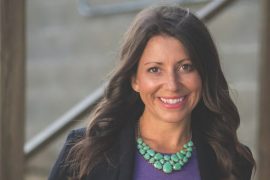By Emily McCluhan | Photography by Hillary Schave
As a young girl, Mai Zong Vue’s family was pushed from their home in Laos to a refugee camp in Thailand, after the fall of Saigon when the U.S. withdrew its troops following the Vietnam War. Vue had to walk to a well every day for water, had no electricity and limited food. Being so far from home, she clung to her Hmong heritage and traditions, which provided her familiarity and a sense of home. Vue’s community was also tight, and its members focused on finding a better life outside of the camp.
In 1980, when Vue was a teenager, her family landed in Monticello, Illinois, as part of the Refugee Resettlement Program sponsored by the U.S. government. Her family soon relocated to Kimberly, Wisconsin, to be with her older sister’s family. Vue quickly established herself as an advocate for the Hmong community in Kimberly.
“Coming here as a Hmong teenager, you learn the language first. You have to interpret for your parents when they go to the hospital or wherever they need to go outside of the house,” she says. “Then you learn to navigate the system, because now you have to educate them … and you have to tell the doctor what doesn’t work for your parents. So interpreting leads to navigating, and then navigating leads to advocacy.”
By her senior year in high school, Vue’s advocacy extended to relatives, fellow students and their families. Post-college, her second job was with the Department of Workforce Development in Madison. While there, she began a refugee women’s program that eventually folded in a focus on refugee mental health and domestic abuse. (She continues to manage those programs through the Department of Health Services.)
Vue spent much of the 1990s and 2000s advocating for refugees at the national and international levels, but once she got married and started having children, she turned her focus back to Wisconsin, and specifically, the Hmong community in Madison.
In 2018, she and husband Peng Her were able to draw upon her 35 years of advocacy work and founded the Hmong Institute, housed at the Life Center on Madison’s east side. It includes the Hmong Language and Cultural Enrichment Program for Hmong children — yet another program Vue started in 2013 with support from other Hmong parents who saw their children struggling to keep up in Madison schools.
“We bring Hmong elementary and middle school students together, and teach them Hmong language and culture, and also give them academic support on reading and math,” she says.
An additional challenge many refugees face as children is the push to acclimate to the U.S., while still honoring their culture and heritage, Vue explains. Another of the program’s goals is to deeply root the Hmong culture early, so kids can accept and value who they are as Hmong people living in the U.S.
The program also creates opportunities for the young Hmong women who teach it. Vue says it boosts their confidence and prepares them for leadership roles in their personal and professional lives.
The Hmong Institute also houses Hmoob Kaj Siab, a holistic senior center and mental health support program for Hmong veterans, elders, women and families. Vue proudly shares how one of the young Hmong women she mentored since 2015 is now the first home-grown Hmong psychologist in Wisconsin and provides services through Hmoob Kaj Siab.
“We started out with a bilingual person who just spoke broken English to serve the community. And in the next decade we had case managers who spoke more English and understood more of the system. Fast-forward to now, and we have a Hmong professional who is trained in mental health,” she says. “My hope is that all of the trauma and PTSD that is glued together like an onion can be peeled apart by someone like her, and we can start to heal our community.”
Recently, one of Vue’s friends asked her if she’d ever reflected on the impact of her years of advocacy for the Hmong community. Vue paused, and admitted that she hadn’t. The work is never done in her mind — but she agrees that it might be time to appreciate her successes and the road she has paved for future generations of Hmong people in Wisconsin and around the world.




